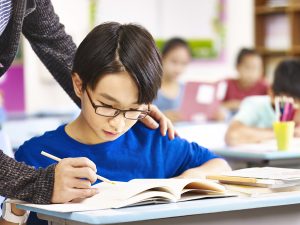Why we must start getting children back to school
 The longer children are not in school, the more they will suffer through their educational journey and beyond into the workplace.
The longer children are not in school, the more they will suffer through their educational journey and beyond into the workplace.
The government was correct to identify that children in Reception, Year 1 and Year 6 are being particularly hit by the school closures.
Reception and Year 1 children are learning basic numeracy and literacy and not going back to the classroom will be a real setback for their development.
Year 6 children are about to go up to secondary school and this interruption to their development in numeracy and literacy will have seriously affected the progress of many.
Without some interventions, they will enter secondary school at a severe disadvantage.
The first and last years of junior school are so crucial because they top and tail primary education overall; Year 1 sets them off in the right direction and year 6 caps it off.
If children do not go back before the summer holiday they will have lost a whole term of school.
Whilst many parents have made great efforts with homeschooling there are some who have simply found this burden too difficult to bear.
This lost term will stay with their child for the rest of their life and it is a hole in their education that the school will struggle to make up even if the children return at the beginning of June.
If children leave primary school without a decent level of numeracy and literacy they will probably struggle right through their secondary education.
If a child’s numeracy is poor it will affect their progress in mathematics, physics, chemistry and design and information technology.
If a child is struggling with their literacy it will particularly affect their progress in English and humanities subjects, but it will also affect their development in the technical subjects too.
Children who have special needs or are otherwise disadvantaged will be more affected by the closure of their primary school.
Secondary schools are difficult educational establishments for the sorting out of individual problems in numeracy and literacy because children are tackling so many subjects and travel from classroom to classroom.
It is far more difficult for the SENCO or special needs teachers to address children’s difficulties because it invariably means pulling them out of other lessons to address these difficulties.
This has a knock-on effect and children will lag behind even more in the subjects from which they have been withdrawn.
In the end, we have to weigh up the damage being done by these closures to a whole generation of children against the potential dangers of Covid-19.
These are difficult decisions for a government to make, but these children will have had their life chances severely affected if these closures continue and that may be worse than the risks that the Coronavirus poses.